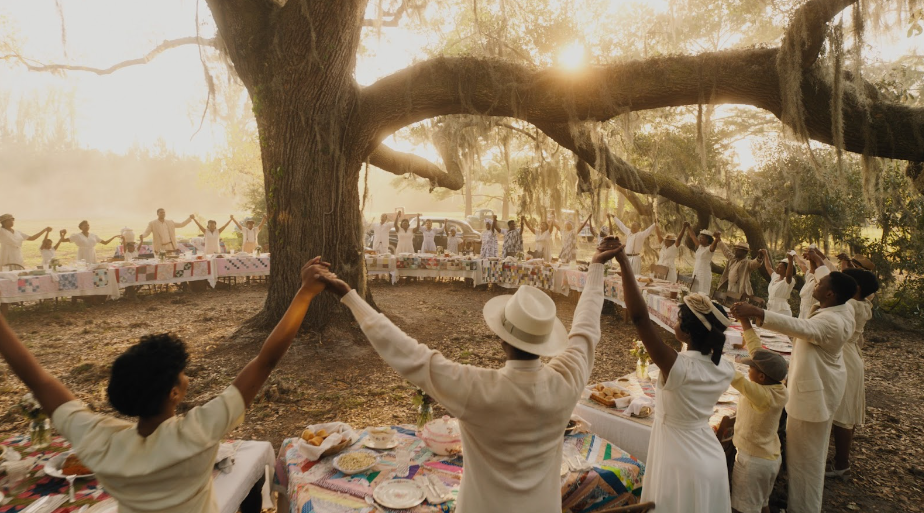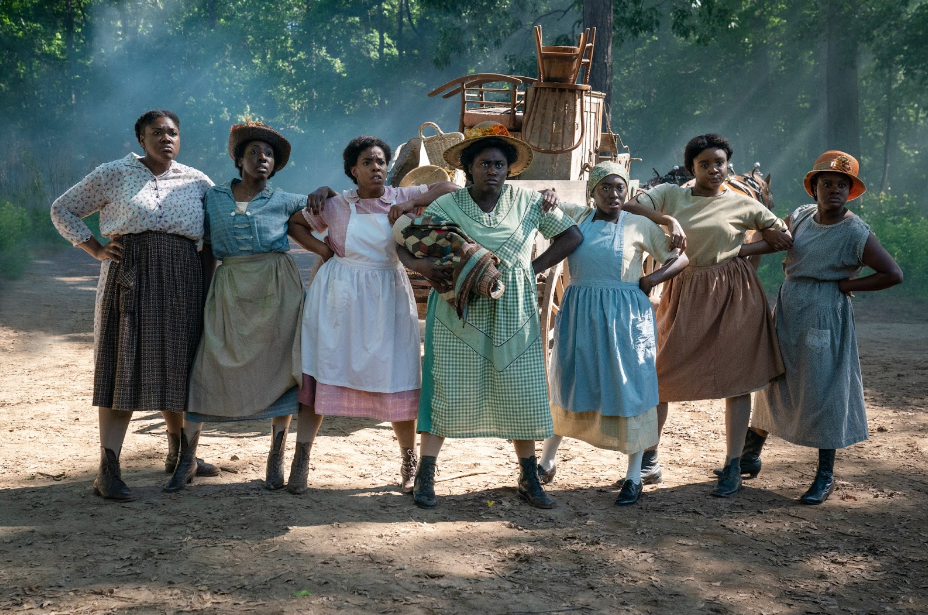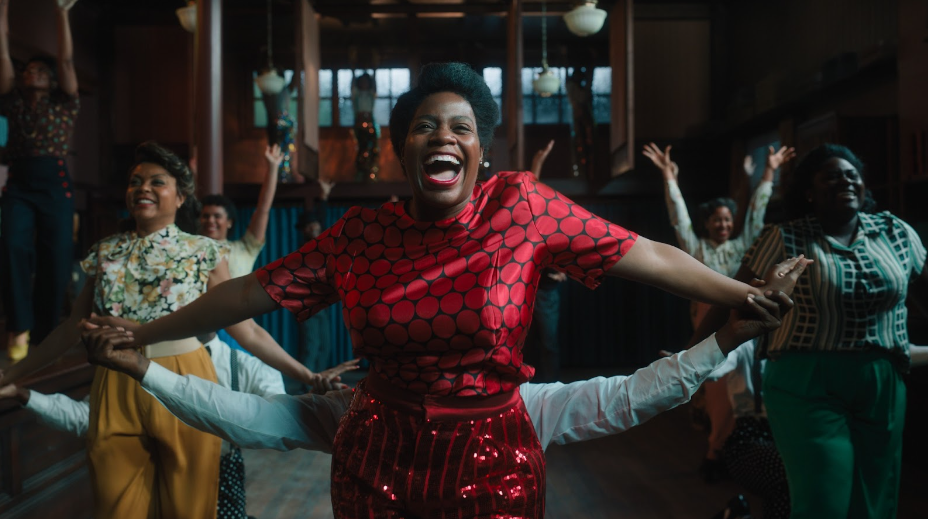Alice Walker’s 1982 groundbreaking novel “The Color Purple” holds great significance within the Black community for generations. In the novel, the main character Celie is separated from her sister Nettie by her abusive husband “Mister.” Celie then spends her days aiding Mister, only seeing Mister soften once the beloved jazz singer Shug Avery comes to visit. Celie finds herself questioning her own identity and purple in life whilst her connection with Shug strengthens. The intricate story explores the importance of forgiveness and relationships.
Blitz Bazawule’s 2023 musical adaptation in comparison to the original 1985 film. Fans of the previous adaptation were quickly outspoken on their dislike of the remake of the classic movie, along with the musical aspect of the film. As a Black woman in musical theater, I was overjoyed to see the announcement of this rendition. I agreed that the remake could never top the original, but loved the emphasis on music, a key aspect of Black culture. As a representative from Coulture magazine, I was able to pre-screen the movie in preparation for interviewing the director and actresses involved.
Bitz Bazawule was the director of the 2023 “The Color Purple” rendition. Bazawule is a Ghanaian filmmaker and songwriter, notable for co-directing Beyonce’s 2020 “Black Is King” production film.
Tiffany Jones: With everything going on in the world including issues over diverse casting and representation, and taking into account topics of domestic violence, forgiveness, and sisterhood, what message or themes did you want to portray or emphasize through the creation of this process and why?
Bazawule: It is important for young people to see this film to apply the messages of the film to current times to showcase how the same themes within the upcoming film transcend time.
I want families to watch the film together to go through their own “radical forgiveness and communal healing within”.
College Journalist: What was the most challenging part of creating the film?
Bazawule: The most challenging aspect was how music can live in media, within the movie. I struggled to create a line between musical theater and an acting-strict film, wanting the music to seem natural.

College Journalist: How were you able to incorporate your identity as a Ghanaian in “The Color Purple?”
Bazawule: One difference on this film’s rendition than the original was the emphasis on African identity to the African American community, wanting to portray the struggle within oneself to find this, along with the distinction between African and ethnic-specific Africans. Having had the chance to anchor the African experience, the film moved me in personal ways as I was able to see this belongingness, going from a kid in Ghana to Hollywood.
Phylicia Pearl Mpasi starred in her breakout role portraying young Celie in the film. With her first big project being such a powerful role, she reflected on her time on set and her struggles with acting.
College Journalist: What do you want to come out of this film?
Mpasi: I didn’t want this film to just be Black, as that is limiting, but rather a film just as worthy of academy-recognized awards as the rest.
College Journalist: How was it to get into the mental space to portray Celie, and how are you able to separate yourself from playing a trauma-ridden character?
Mpasi: The separation between Celie and me became fuzzy as I started to feel the solitude of Celie off-camera. To overcome this, the cast would take themselves away from our characters after filming to connect. I also used Sundays as a mental health day, notably taking care of my Black, natural hair. During my hardest film to scene, Oprah (Winfrey), who’d portrayed Sophia in the 1985 film, called me and sent her love and congratulations, which served as a pick-me-up.
“When I See You” singer and American Idol winner Fantasia Barrino stars as adult Celie, coming as a full circle moment as she played Celie in the 2007 Broadway musical rendition. “Orange Is the New Black” star Danielle Brooks turns to a darker, musical-based role during her portrayal of Sophia in the film. Golden Globe Winner Taraji P. Hensen explores a different role through playing jazz artist Shug Avery.
College Journalist: What were your intimidations going into the film?
Barrino: As singing is what I find comfort in, stepping into the acting scene was hard.
Hensen: With my intimidation to singing, I was so nervous that I hired a private voice coach months before filming to perfect my showcasing of the Jazz-loving Shug Avery.
Brooks: The hardest part was being in the film along with my iconic, award-winning co-stars.
Interviewer: How have you developed chemistry among the three of you?
Barrino: I credit director Bazawule for choosing a cast he’d know would have good chemistry, as that chemistry would reflect on camera. This was important as the theme of sisterhood is crucial in the film.
College Journalist: What advice would you give those struggling, whether that be in one’s career or in one’s personal life?
Henson: I want women to keep fighting.

College Journalist: What theme would you like to resonate with audiences?
Brooks: The theme of sisterhood the film presents through both biological sisters and those close to them, portraying the idea of black women lifting each other up.
I believe that the themes mentioned are reflected adequately in the film. The songs throughout the film were able to portray emotions that aren’t just visible physically but emotionally. The work of art captures attention regardless of whether one is into the theatrics. Regardless of gender, class, age or race, I encourage everyone to watch the film to better understand common values of relationships, togetherness and forgiveness we often forget. I look forward to seeing the movie in the theater surrounded by Black audiences, and my community members, to be able to feel the emotions that watching the film in solitude hadn’t wholeheartedly reflected.
- From Barbie Pink To The Color Purple - January 5, 2024

